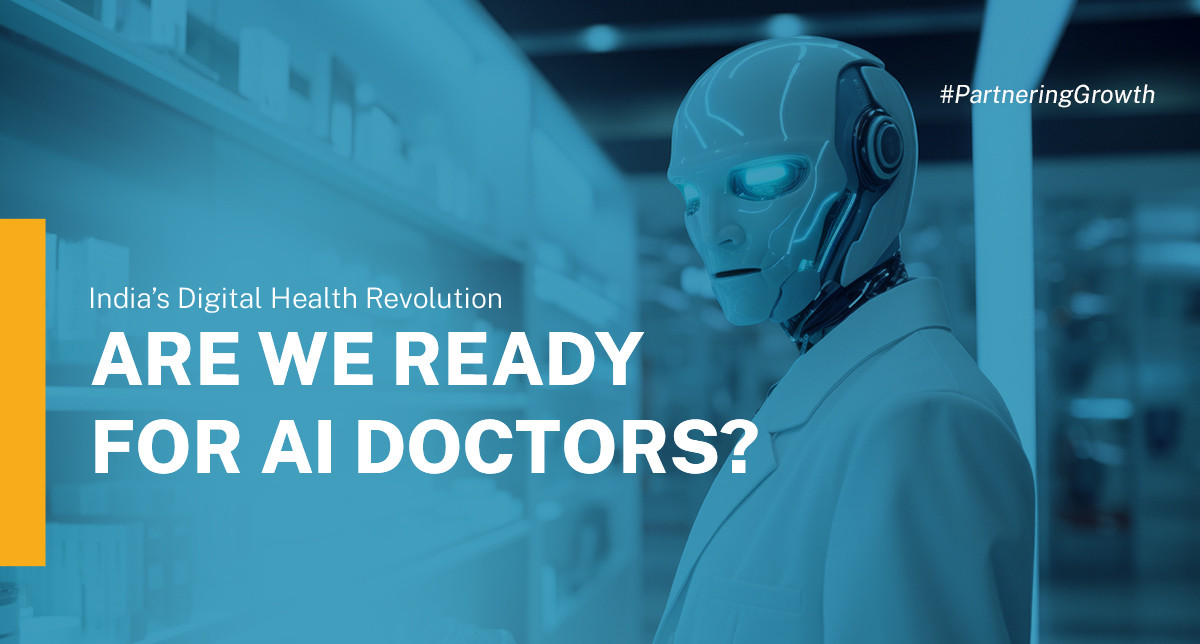


The mix of artificial intelligence and digital infrastructure is starting to change Indian healthcare. From radiology and diagnostics to virtual consultations and managing chronic diseases, AI-powered systems are shifting from experimental use to practical application. As we approach this turning point, a key question emerges: is India ready to responsibly integrate AI into crucial clinical workflows? The Structural Gaps AI Can Address AI and digital platforms can help scale expertise, automate routine tasks, and support human decision-making. Initiatives like the Ayushman Bharat Digital Mission are setting the stage by establishing long-term digital health records, interoperable systems, and patient ID frameworks. These advancements create a data-rich environment where advanced algorithms can be trained, tested, and rolled out on a large scale. From Clinical Support to Autonomous Triage Looking ahead, semi-autonomous AI applications could assist in triage, health coaching, and even early diagnosis, especially in primary care settings. With smartphone usage exceeding 60% in India (according to TRAI 2023 data) and mobile-focused telehealth services growing, AI-driven care models are becoming more feasible, particularly in underserved areas. Guardrails for Responsible Deployment Additionally, training datasets for medical AI tools often come from Western populations, which might not represent the genetic, environmental, or socioeconomic realities of Indian patients. To ensure safe deployment, local clinical validation, ongoing monitoring, and adjustments specific to the context are essential. A New Model of Care, Not a Replacement As India develops its digital health infrastructure and boosts AI innovation, the chance to lead globally in fair and ethical health AI is within our grasp. But readiness should be assessed not just in terms of technology, but in policy, practice, and people. The challenge ahead is not about whether we can create AI doctors. It is about whether we can establish the systems, trust, and safeguards necessary to make them effective for every Indian.
India still has a serious shortage of healthcare professionals. The World Health Organisation states that India has about one doctor for every 1,404 people, which is below the recommended one per 1,000. This problem is worse in rural areas, where access to specialists is limited or nonexistent.
Currently, AI mainly serves as a support tool. It detects anomalies in radiology scans, identifies diabetic retinopathy, and aids in early cancer screening. Research published in journals such as The Lancet Digital Health and Nature Medicine has shown that AI models can meet or surpass human accuracy in specific diagnostic tasks.
However, just because something is technically possible doesn’t mean it’s ready for clinical use. The ethical, regulatory, and legal aspects of adopting AI still need significant development. As mentioned in NITI Aayog’s report Responsible AI for All, India needs strong protections against algorithmic bias, clarity, data security, and accountability. Without these measures, earning trust, crucial in healthcare, will be challenging.
It is crucial to understand: AI is not meant to replace doctors. Instead, it acts as an enabler, extending the reach of healthcare professionals, reducing administrative burdens, and providing quicker access to evidence-based treatments. The future of medicine in India will be collaborative, with clinicians benefiting from data and machines learning from their experiences.